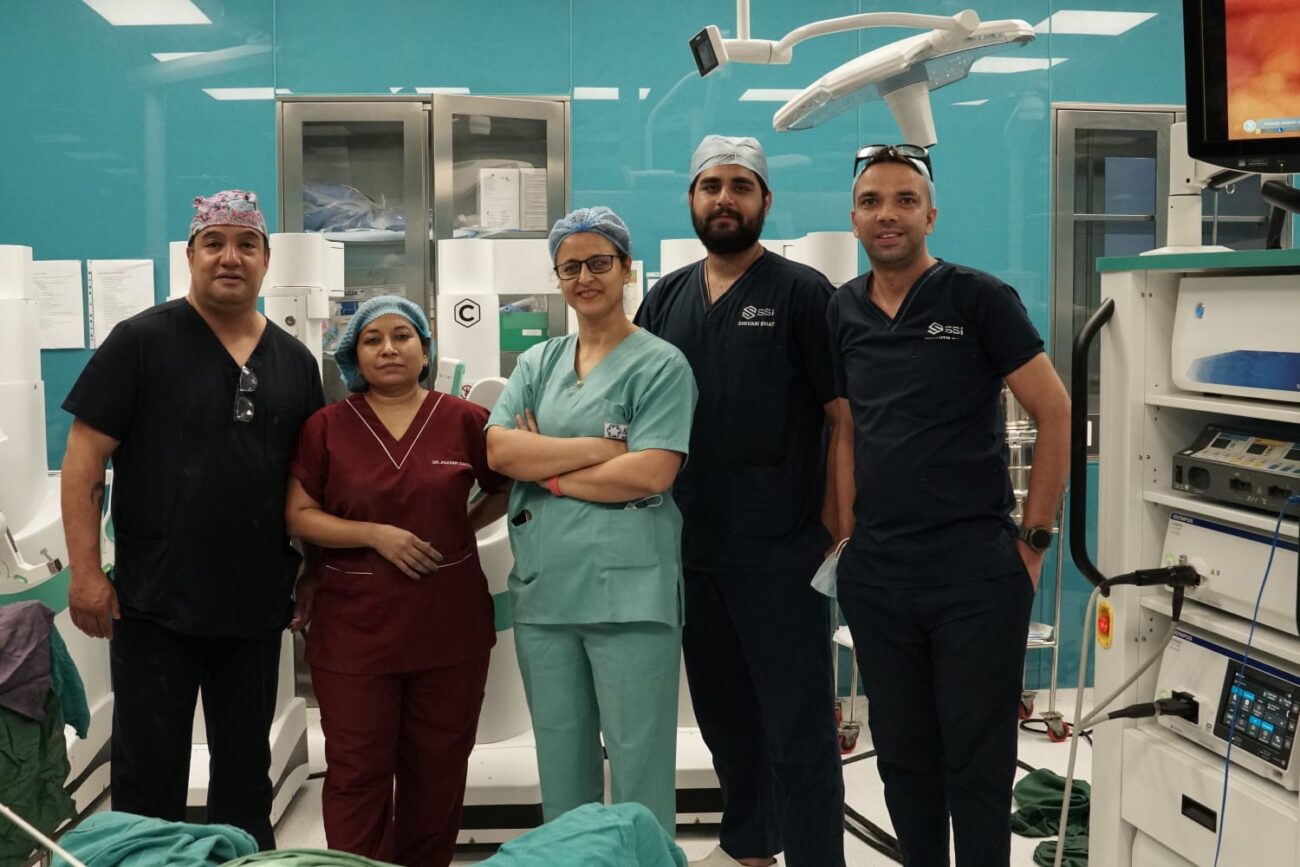Experts at Indraprastha Apollo Hospitals advocate for Hearing Health in India
In India, more than 63 million people suffer from significant hearing lossOne lakh children are born every year with hearing deficiency in India In an awareness event organized today at Indraprastha Apollo Hospitals by its Cochlear Implant Team,
- In India, more than 63 million people suffer from significant hearing loss
- One lakh children are born every year with hearing deficiency in India
In an awareness event organized today at Indraprastha Apollo Hospitals by its Cochlear Implant Team, Health Experts discussed and advocated the cause of Hearing Health in India. Prevention is better than cure and Universal Newborn Hearing Screening (UNHS) is Apollo Hospitals’ critical part of children’s hearing health program. Making Universal Newborn Hearing Screening mandatory will go a long way towards achieving this. At an event to mark 14 years of the launch of Apollo Hospitals’ cochlear implant programme, this came out loud and clear. Since 2005, Apollo Hospitals has brought the sounds of joy into the lives of 1500 children who have received hearing implants.
Brett Lee, Global Hearing Ambassador to implant make Cochlear joined Mr. P ShivKumar, CEO, Apollo Hospitals, Dr Anupam Sibal, Group Medical Director & Paediatric Gastroenterologist Indraprastha Apollo Hospitals, Dr(Prof) Ameet Kishore, ENT and Cochlear Implant Surgeon, Indraprastha Apollo Hospital and Ms Neevita Narayan, Audiologist , Speech Therapist (SpHear) and Cochlear Implant Specialist for Apollo Hospitals in celebrating this milestone. They also shared insights on the significance of newborn hearing screening, urging the government to mandate UNHS across the country.
According to the World Health Organisation (WHO), of the 466 million people suffering from significant hearing loss globally, 34 million are children; the UNHS aims to ensure that all newborn babies undergo a hearing screening test at birth.
In India, 6.3 per cent of the population, – an estimated 63 million people in 2009 – suffer from significant auditory loss. Four out of every thousand children suffer from severe to profound hearing loss; roughly 100,000 children are born with hearing deficiency every year. The National Sample Survey – the 58th round in 2002 – surveyed disability in Indian households and found that hearing disability was the 2nd most common cause of disability and the topmost cause of sensory deficit.
Speaking at the event, Brett Lee said, “It is a matter of extreme pride for me to be able to see institutions like Apollo bringing the joy of hearing into the lives of so many children, and into the lives of their families. Hearing loss is treatable but not many are aware about the available options. Awareness initiatives like these play a crucial role in educating parents and families of newborns thereby creating awareness about UNHS. I am proud to be associated with the cause of UNHS; with these efforts, we as a team, aim to ensure that everyone can experience the sounds of everyday life.”
Mr. P ShivKumar, CEO, Indraprastha Apollo Hospitals said “Hearing Health is not a much talked about subject in India. Apollo Hospital with other stakeholders would be implementing an advocacy campaign on hearing health to make UNHS one of the mandatory tests along with the other tests conducted for newborn. UNHS is widely practised in countries like the USA, Singapore, Australia and the UK; India is yet to set up an “all-inclusive” screening programme for newborn children. Our eyes and ears are the windows to the world, so it’s crucial that these two organs function properly”
In his remarks, Dr. Anupam Sibal said “Today, we complete 14 years of Universal Newborn Hearing Screening Program which is a proud feeling and a moment of celebration. We have made a difference to the lives of 1500 children across the globe by helping them experience the sense of hearing. We will continue our commitment to incorporate global healthcare best practises and providing the outstanding services to our patients.”
Talking about the significance of newborn hearing screening, Dr.(Prof) Ameet Kishore said “I have witnessed the fulfilment on the faces of parents when their kids go from being hearing impaired to being able to hear normally as everybody else post treatment. Early detection of hearing loss is the first step towards building this satisfaction. In New Delhi alone, there are more than 34,000 people suffering from significant hearing impairment. We have experienced the significant impact of this program and have helped in creating a positive difference in the lives of 1500 children and their families. In India, we do not follow the 136 rule which is the first step to detect deafness in any newborn.”
Ms. Neevita Narayan, Audiologist, Speech Therapist, and Cochlear Implant Specialist for Apollo Hospital said, “Hearing loss can greatly impact a child’s learning in the formative years. It is frequently observed that hearing loss leads to hindered verbal skills. Early detection helps in faster and effective treatments. Parents may not always be able to identify the hearing loss in their children, which is why having new-born hearing screening becomes crucial. UNHS program is adopted across geographies to enable early detection and thereby solve the problem of hearing disability .It is time it became a practice in India too.”
Currently, Kerala is the only state in our country to have successfully achieved 98% UNHS success across government hospitals. The Kerala Social Security Mission has developed a software for collecting real time data of newborns who have undergone screening. This data is archived and used by institutions such as District Early Intervention Centres (DEICs) and medical colleges during regular follow-ups and enabling them to provide advanced services to affected children and their families.



